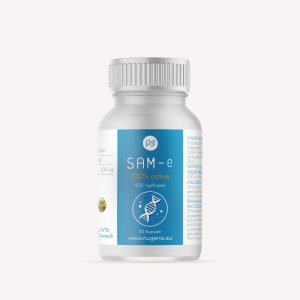
Epigenetics of COPD – How the Environment Rewrites the Lung’s Genetic Memory
Epigenetics of COPD – When the Environment Rewrites the Lung Epigenome
Chronic obstructive pulmonary disease (COPD) is one of the leading causes of death worldwide. While genetic predisposition plays a role, the decisive drivers are epigenetic misregulations induced by environmental exposures such as cigarette smoke, particulate matter (PM2.5), ozone, volatile organic compounds (VOCs), and recurrent infections.
The classical dichotomy between chronic bronchitis and emphysema is increasingly replaced by an integrative view: COPD as an epigenetically shaped disorder of inflammation, tissue remodeling, and immune regulation.
Central epigenetic mechanisms in COPD
| Epigenetic Mechanism | Effect on the Lung |
| DNA methylation | Silencing of repair genes (e.g., HDAC2, NFE2L2) → chronic inflammation |
| Histone modifications | Inactivation of anti-inflammatory genes (e.g., via HDAC inhibition by smoke toxins) |
| miRNA dysregulation | Overexpression of pro-inflammatory miRNAs (miR-21, miR-146a), suppression of autophagy |
| Reduction of HDAC2 | Lower glucocorticoid sensitivity → persistence of inflammation |
| Oxidative stress (ROS) | Establishes inflammatory “memory” in macrophages and fibroblasts |
Key epigenetically relevant target genes in COPD
| Gene | Function | Epigenetic Change |
| HDAC2 | Histone deacetylase, inflammation control | ↓ expression by ROS → corticosteroid resistance |
| NFE2L2 (NRF2) | Master regulator of antioxidant defense | Promoter hypermethylation → ↓ antioxidant response |
| IL-8 / TNF-α | Pro-inflammatory cytokines | ↑ expression via hypomethylation and miRNA dysregulation |
| MUC5AC | Mucus production | ↑ through epigenetic derepression |
Transgenerational epigenetics in COPD?
Animal studies suggest that nicotine exposure during pregnancy can leave epigenetic marks in the germline, increasing airway vulnerability in the grand-offspring without genetic mutation. Methylation patterns in immune-regulatory genes such as FOXP3 and GATA3 (crucial for T-cell balance) may remain unstable across generations, predisposing to asthma-like phenotypes and impaired lung resilience.
Environmental risk factors with epigenetic impact
- Cigarette smoke: over 4,000 compounds, many acting as DNA methyltransferase (DNMT) modulators
- Particulate matter (PM2.5): triggers ROS, alters macrophage methylation profiles
- Early-life events: preterm birth, C-section, childhood respiratory infections → alter lung epigenetic maturation
- Vitamin D deficiency: epigenetically modulates TGF-β signaling, contributing to fibrosis and remodeling
Epigenetically informed prevention and therapeutic strategies
| Strategy | Epigenetic Benefit |
| Smoking cessation & detoxification | Partial reversal of DNA methylation changes after ~6–12 months |
| Sulforaphane (broccoli sprouts) | Reactivates NRF2, restores antioxidant response, stimulates HDAC2 |
| Polyphenols (EGCG, curcumin) | DNMT inhibition, miRNA modulation, anti-inflammatory |
| Vitamin D + Omega-3 fatty acids | Epigenetic regulation of TGF-β, IL-10 → supports immune balance |
| Breathing therapy & natural exposure | Parasympathetic activation → induction of anti-inflammatory gene expression |
Takeaway
COPD is not a fixed genetic destiny but the outcome of an epigenetically derailed lung biography.
The lungs remember every inhaled particle, every toxin, and every inflammatory episode – encoding them into lasting molecular marks. Prevention and therapy must therefore not only target airflow limitation, but also aim at rewriting the epigenetic memory of the lung.
“COPD is the story of the lungs written by the environment – but a story that can be edited.”
Eduard Rappold
Note: This information is provided for educational purposes only and does not replace professional medical advice. Always consult qualified healthcare professionals for medical concerns.
Copyright © Eduard Rappold 2025
http://nugenis.eu/shop
NUGENIS specializes in epigenetically active nutritional supplements.

